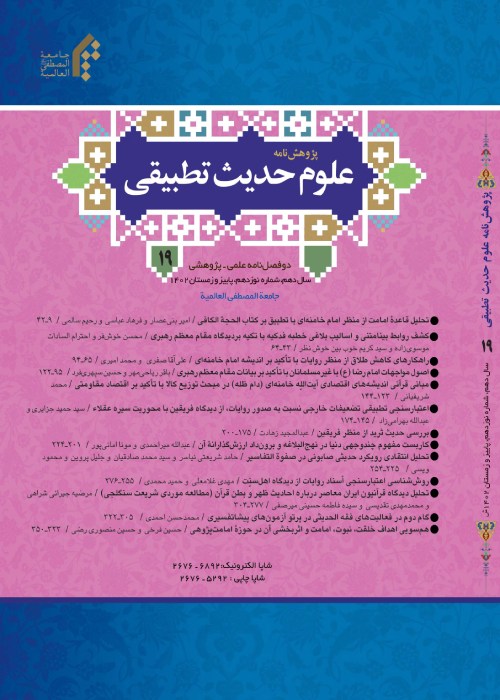Critical Analysis of the Quranic Interpretive and Narrative Approach of Madelung on the Succession of the Holy Prophet
The issue of the succession of the Holy Prophet is one of the most important and distinguishing aspects of Shiite Islam compared to other Islamic sects. This paper employs a descriptive-analytical method with a critical approach to examine the Quranic approach of Wilferd Madelung on the issue of the succession of the Holy Prophet (with a focus on the interpretive and narrative sources of both sects). Madelung initiated this movement in his book “Succession to Mohammad,” which was published in 1997 and soon became a significant reference in this discussion. In the introduction to his book titled “Familial Relationships and Prophetic Families in the Quran,” he extensively examines the role and importance of the Prophet's progeny in confirming, establishing, and continuing their mission and guidance. He demonstrates that, according to the Quran, the successors of the prophets are chosen from among their families and appointed by them, and the Holy Prophet had no intention other than this. Despite the relatively recent and delayed studies in Shi'a studies and Shi'a research activities, addressing the issue of Imamate (leadership) is of greater necessity compared to other raised issues. The study of opinions and views of interpreters from both sects regarding the interpretation of the verse of “Wilayah” (guardianship) indicates that they generally have two main perspectives based on Verse 55 of Surah Al-Ma'idah: 1. Most Sunni interpreters understand the term “wali” in the verse to mean friend and supporter, and based on this, they consider guardianship in the verse as absolute and inclusive of all believers. 2. Shi'a scholars do not merely understand the term “wali” to mean love and support, and they perceive such a meaning to conflict with other verses. They believe that in addition to love, this term encompasses social and political authority, and support is one of its outcomes. Based on the meaning of “wali” in the verse and the excessive (mutawatir) narrations, which attribute the revelation of the verse to the guardianship of Imam Ali, Shi'a interpreters consider the noble verse as Quranic evidence of the guardianship and Imamate of Imam Ali.
- حق عضویت دریافتی صرف حمایت از نشریات عضو و نگهداری، تکمیل و توسعه مگیران میشود.
- پرداخت حق اشتراک و دانلود مقالات اجازه بازنشر آن در سایر رسانههای چاپی و دیجیتال را به کاربر نمیدهد.


